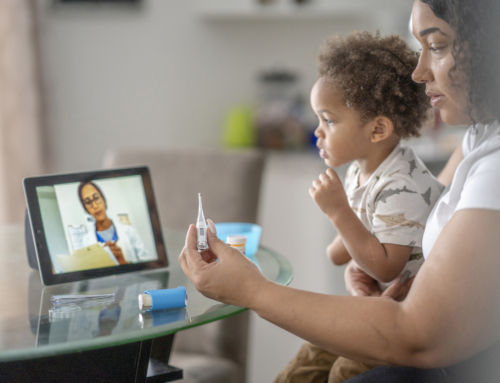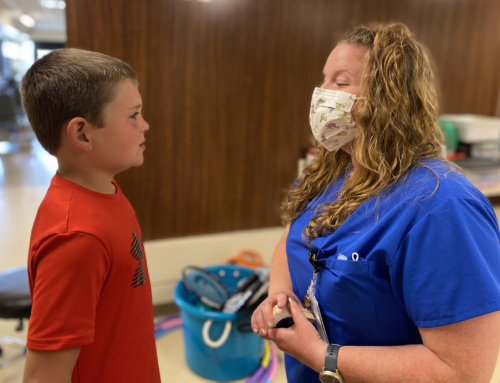Vaccinations are Not Only Required in Craig, They’re a Global Health Responsibility
Measles was declared eliminated in the United States in 2000, yet as of this week, the Centers for Disease Control and Prevention reports there have been more cases of measles during 2019 than any year since 1992.
The majority of the 1,182 cases in the U.S. this year are among people who were not vaccinated against measles. This preventable disease is now resurging around the world in developed countries that had previously eradicated it due to growing anti-vaccination movements.
“Immunizations are one of the most important things we do in pediatrics, and probably all of health care,” said Dr. Linda Couillard, pediatrician at Memorial Regional Health. “Immunizations are very safe and very effective — they truly are one of the biggest breakthroughs in my lifetime.”
While Colorado has had just one case of measles in 2019, the choices families make as children head back to school could have major health impacts on entire communities.
Why vaccination exemptions are dangerous
Only a very small number of people have a valid medical reason, such as certain immunodeficiencies, for exemption from certain vaccines. However, the anti-vaccination movement spread misinformation and conspiracy theories that have widespread public health consequences.
“Some people are reluctant to vaccinate their children based on widespread misinformation about the vaccine,” according to the National Institutes of Health. “For example, they may fear that the vaccine raises their child’s risk of autism, a falsehood based on a debunked and fraudulent claim.”
Dr. Couillard recognizes that the anti-vaccination movement is rooted in decisions based on love and fear. Parents love their children more than anything and for whatever reason — they’ve read something scary or heard false information from friends or family — they’re afraid of vaccinating.
Dr. Couillard said scientific research has proven beyond any doubt that immunizations do not cause autism. She said parents can read up on reliable research from the American College of Pediatricians, the American Academy of Family Physicians, the CDC, the National Institutes of Health and many others.
“You’re never going to be able to convince some people, but it’s important to help them educate themselves and help them use reliable sources,” she said.
Further misinformation debunked
Another popular belief among anti-vaccination believers is that if vaccinations are so safe and successful, then those who are unvaccinated shouldn’t be of concern to those who are. This belief also can have dangerous, widespread consequences.
“When levels of vaccine coverage fall, the weakened umbrella of protection provided by herd immunity — indirect protection that results when a sufficiently high percentage of the community is immune to the disease — places unvaccinated young children and immunocompromised people at greater risk,” according to the National Institutes of Health.
This can have disastrous consequences with measles. The authors of a recent study in the New England Journal of Medicine describe a case in which a single child with measles infected 23 other children in a pediatric oncology clinic, with a fatality rate of 21 percent.
Dr. Couillard said her experience in Craig is that the majority of patients do vaccinate according to schedule and follow immunization recommendations. She has worked at practices in the past where that wasn’t always the case.
“As a pediatrician, you’re exposed to a lot of things,” she said. “You could be exposed to meningitis and other new communicable diseases from across the globe, now that international travel is so common.”
Not vaccinating isn’t just about your family or your child, she said. The most vulnerable people in communities — such as the 6-month-old who can’t get the MMR (measles) vaccine yet, or the adult who’s undergoing chemotherapy and has a compromised immune system — are the people who the unvaccinated could harm.
“Medicine has come so far,” Dr. Couillard said. “These choices are not just for our children and their health — we have a global responsibility to people who can’t protect themselves for a variety of reasons.”
Vaccines for school-aged children
In addition to the vaccines listed below that are required for school entry, there are several vaccines recommended by the CDC’s Advisory Committee on Immunization Practices (ACIP) that provide protection against other diseases. These include meningococcal, hepatitis A, rotavirus, human papillomavirus and influenza. View the CDC’s recommendations at https://bit.ly/2mBqCI4.
Vaccines required to enter school (K-12)
- Hepatitis B.
- Diphtheria, tetanus, pertussis (DTaP).*
- Inactivated poliovirus (IPV).*
- Measles, mumps, rubella (MMR).*
- Varicella (chicken pox). *
- Tetanus, diphtheria, pertussis (Tdap).**
*Students 4 through 6 years of age are required to have their final doses of DTaP, IPV, MMR and Varicella prior to kindergarten entry.
**Students are required to have Tdap prior to entry into 6th grade. One dose of Tdap is required for 6th through 12th grades.
Source: Colorado.gov
Vaccinations at MRH
To schedule an appointment for your child’s scheduled vaccinations before the school year begins, call 970-826-2480. The first day of school is Aug. 26.





![Well-child checks vs. sports physicals — what’s the difference? [INFOGRAPHIC]](https://memorialregionalhealth.com/wp-content/uploads/Well-Child-Checks-vs.-Sports-Physicals-Image-500x383.jpg)
